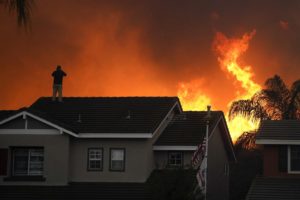from Kerry E. Kelly
Air purifiers, ionizers, filters, and more have come up for debate in reducing the spread of the SARS-CoV-2 virus. Two recent studies consider findings on there effectiveness:
Should homes and workplaces purchase portable air filters to reduce the transmission of SARS-CoV-2 and other respiratory infections? A systematic review
This PLOS ONE article by Hammond et al. examines portable air filtration as one potentially cost-effective way to reduce the spread of SARS-CoV-2 and other respiratory viruses. A recent review study found that existing published studies provide ‘proof of principle’ that air filters can capture airborne bacteria in an indoor setting. However, critical evidence is lacking regarding the effectiveness of this intervention for indoor transmission of respiratory infections, including SARS-CoV-2.
Testing mobile air purifiers in a school classroom: Reducing the airborne transmission risk for SARS-CoV-2
Another study published by AS&T and completed by Curtius et al. determined that HEPA air purifiers could be an effective strategy to reduce the risks of airborne transmission of SARS-CoV-2. This article is the AS&T Article Highlight in this issue of Particulars for readers interested in a deeper overview. The study found that if an individual spent two hours in a closed room with a highly infective person, the inhaled dose is reduced by a factor of six if the room had a HEPA air purifier in it.
In the media:

Oct. 27, 2020, Herman Termeer, 54, stands on the roof of his home as the Blue Ridge Fire burns along the hillside in Chino Hills, Calif. (AP Photo/Jae C. Hong, File)
Grim western fire season starts much drier than record 2020
It’s shaping up to be a challenging wildfire season. Even with 2020’s record-setting season for wildfires in the Western US, 2021 could be worse. In much of the region, the plants that fuel fires are the driest scientists have seen. Although we are early in the wildfire season, Arizona has already experienced a fire that ranks in the state’s top 10 largest fires in history and Utah had a new fire ignited every day for three weeks straight. See what experts have to say and what to expect from AP News.
Rescission of the 2020 Benefit-Cost Rule
More changes to air-quality policy are developing under the Biden Administration. The Biden administration moved to repeal a Trump-era regulation, called the Benefit-Cost Rule, that made it more difficult for the U.S. Environmental Protection Agency to issue strict air pollution standards. The EPA said the Benefit-Cost Rule limited the EPA’s “ability to use the best available science in developing Clean Air Act regulations,” a move it argued would be “inconsistent with economic best practices.” This action is the latest push by the Biden administration to aggressively combat climate change and undo more than 100 Trump-era environmental regulations that favored the fossil fuel industry. Read more.
Newsletter Committee Members:
Editor | Gabriel Isacman-VanWertz, Virgina Tech UnivesitySenior Assistant Editor | Kerry Kelly, University of UtahJunior Assistant Editor | Krystal Pollitt, Yale University